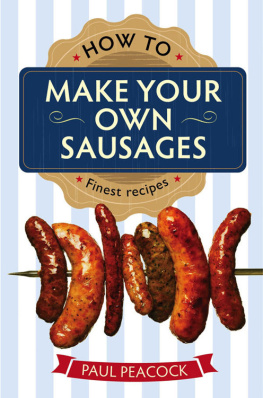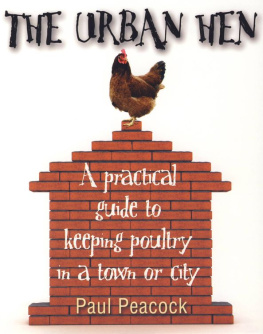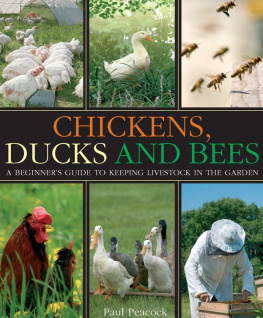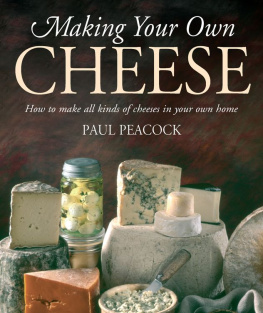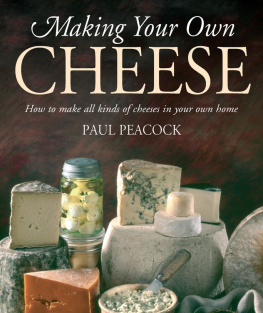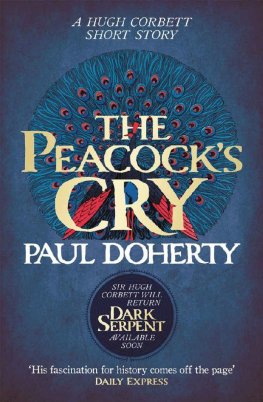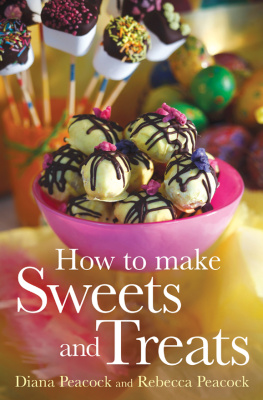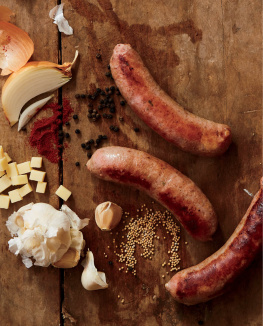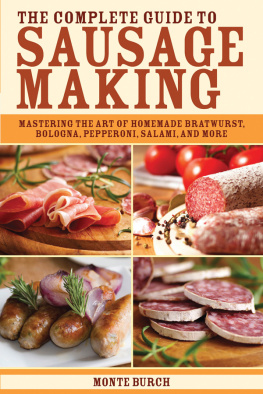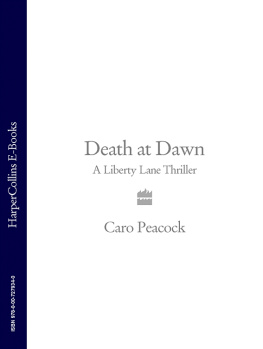Paul Peacock - How To Make Your Own Sausages
Here you can read online Paul Peacock - How To Make Your Own Sausages full text of the book (entire story) in english for free. Download pdf and epub, get meaning, cover and reviews about this ebook. year: 2015, publisher: Robinson, genre: Home and family. Description of the work, (preface) as well as reviews are available. Best literature library LitArk.com created for fans of good reading and offers a wide selection of genres:
Romance novel
Science fiction
Adventure
Detective
Science
History
Home and family
Prose
Art
Politics
Computer
Non-fiction
Religion
Business
Children
Humor
Choose a favorite category and find really read worthwhile books. Enjoy immersion in the world of imagination, feel the emotions of the characters or learn something new for yourself, make an fascinating discovery.
- Book:How To Make Your Own Sausages
- Author:
- Publisher:Robinson
- Genre:
- Year:2015
- Rating:5 / 5
- Favourites:Add to favourites
- Your mark:
- 100
- 1
- 2
- 3
- 4
- 5
How To Make Your Own Sausages: summary, description and annotation
We offer to read an annotation, description, summary or preface (depends on what the author of the book "How To Make Your Own Sausages" wrote himself). If you haven't found the necessary information about the book — write in the comments, we will try to find it.
How To Make Your Own Sausages — read online for free the complete book (whole text) full work
Below is the text of the book, divided by pages. System saving the place of the last page read, allows you to conveniently read the book "How To Make Your Own Sausages" online for free, without having to search again every time where you left off. Put a bookmark, and you can go to the page where you finished reading at any time.
Font size:
Interval:
Bookmark:
Paul Peacock has been making sausages at home for twenty or more years. He regularly teaches sausage-making courses at conferences and shows around the UK, and has filmed an entire series of sausage-making recipes for daytime television. Along with his wife Diana, Paul believes the best food you will ever eat is produced in your own kitchen, and the recipes in this book have stood the test of time, family and the general public. Paul has written more than thirty books on self-sufficiency, and can be found on radio stations around the UK including being a regular contributor to BBC Radio 4s Gardeners Question Time. He also writes a weekly column for the Daily Mirror as Mr Digwell.
Also by Paul Peacock
Making Your Own Cheese
Make Your Own Beer and Cider
Chickens, Ducks and Bees
The Urban Hen
Grandmas Ways for Modern Days
Patio Produce
Paul Peacock

ROBINSON
First published in Great Britain in 2015 by Robinson
Text copyright Paul Peacock, 2015
The moral right of the author has been asserted.
All rights reserved.
No part of this publication may be reproduced, stored in a retrieval system, or transmitted, in any form, or by any means, without the prior permission in writing of the publisher, nor be otherwise circulated in any form of binding or cover other than that in which it is published and without a similar condition including this condition being imposed on the subsequent purchaser.
A CIP catalogue record for this book is available from the British Library.
ISBN: 978-1-84528-591-3 (paperback)
ISBN: 978-1-84528-593-7 (ebook)
The material contained in this book is set out for general guidance and does not deal with any particular and personal circumstances. Laws and regulations are complex and liable to change, and readers should check the current position with relevant authorities before making individual arrangements and where necessary take appropriate advice.
Robinson
is an imprint of
Constable & Robinson Ltd
100 Victoria Embankment
London EC4Y 0DY
An Hachette UK Company
www.hachette.co.uk
www.constablerobinson.com
Thanks to Jane Donovan for editing this book so manfully. To Darren Wright for reading through the manuscript and Joshua, Joel and Rebecca Peacock for stuffing their faces with sausages over the years.
Thanks also to the manufacturers of sausage skins without whom my marriage would not have been saved!
When we think of warfare in these modern times we might picture a fast jet or a battleship, a nuclear weapon or sarin gas. Some of us might remember the Spitfire or the Chieftain tank. Going back into pre-history, warfare was more desperate. It consisted of brave men, sometimes on horseback, often on foot, prepared to rip you open with a piece of sharp metal and then stand their ground. The sausage was a weapon of mass destruction in as much as it enabled lots of such warriors to travel long distances.
Without the sausage, none of the great civilisations of the Old Testament would have existed in the same way. There would be no Egypt for Joseph to take his family into, no Nebuchadnezzar to rule the whole of the known world.
The sausage, first and foremost, is a way of preserving meat and other food, and this not only fed us in times of feast and famine, but guaranteed people, armies and sailors mostly the ability to travel great distances and not run out of food. The salting of sausages the very word sausage means salted also allowed the movement of food over great distances in a convenient form more or less impervious to insects. Anyone who has tried to cure a ham will know that salt alone is not enough to keep the meat safe. Many a piece of pork has been ruined by the action of insects laying their eggs in the meat, but a sausage, in an intestine skin, is more or less safe from the ovipositors of spoiling creatures.
In the Roman army, generals would eat fowl and other animals taken fresh from the lands they happened to find themselves in. Centurions would eat salted beef and lamb, but ordinary foot soldiers, working off their slavery by enslaving others, would eat strangely fermented fish soup and Lucanian sausage (a recipe for this can be found later on Italy, Spain and Turkey to the whole of the Roman world, as far as Hadrians Wall. Consequently any list of What the Romans did for us should include the sausage, as well as enslavement, the mass destruction of civilisations and the peptic ulcer.
Interestingly, Scotland doesnt have quite the tradition of sausages as we know them in the rest of the UK, nor does Ireland, but local sausages, particularly pork sausages in England and Wales, have long been associated with flavours that can be grown locally, such as sage or apple, and a particular breed of pig. The reason why we have so many different types of sausage in England is because in the Napoleonic Wars individual counties and individual families provided food for their regiments so we have a Lincolnshire sausage that was sent for the Lincolnshires, increasingly by canal barge to the nearest sea port, allowing a fast and constant food supply, unlike the French, whose supplies took weeks longer to arrive at the battle lines. It was the canal system and sausages that beat Napoleon. Later, parcels of sausages from various counties sent to the troops in France and Belgium during World War I were simply named Lincolnshire or Derby. These sausages were then directed to the regiments originating from those localities.
The other function performed by sausages was to make something we would naturally recoil from eating into something completely wonderful. Fat sausages in France, that is big fat, juicy sausages made from fat, became boudin blanc, something not that popular in the UK, but wonderful nonetheless. Blood sausages became boudin noir or black pudding. Particularly treasured in Lancashire and parts of Yorkshire, home-kept pigs were expensive meat and all the poor had left to eat once the great monasteries had taken their share of the cuts for the brothers who owned the land the pig peasants farmed, were oats grown locally (the North of England is generally not wheat country) and blood from the slaughtered pig. But cooked in a sausage, black pudding becomes one of the most marvellous delicacies.
Similarly, haggis is a combination of lights or pluck, oatmeal and herbs. Lights or pluck are the heart, lungs and windpipe of ) youll never have a shepherds pie any other way in future.
The keeping properties of sausage led to their trade but, the actual origin of sausage making is not clear. In order to make sausage you need salt, meat, fresh running water and the ability to empty and clean the guts of an animal. In a way, piety played its part, too, in the development of the sausage. Almost every civilisation has a religious abhorrence of waste at its core, and finding something useful to do with intestines reflects this. The gut is a remarkable piece of technology. It makes strong rope, the very best musical instruments, excellent containers for food and was probably important in the development of cheese. (Cheese-making became the main use for young male calves for rennet, itself made by drying and powdering the stomach of young cattle. Males generally were of little use around the farm and were quickly dispatched for food.) The gut also makes excellent weapons, including the sling shot, bow strings and, in more modern times, Zeppelins!
Trade in sausages is recorded first in Greece, probably because they had a reliable, long-lasting system of writing and were able to record their transactions rather than because they were first to trade sausages. There are plenty of examples of sausages being traded around the world, from earlier times. Parys Mountain, Anglesey, and the Great Orme in Llandudno in the Bronze and Iron Ages were centres of copper mining visited from all parts of the ancient world, and trade in food was a part of this activity. For some roundhouse dwellers, inland of the Welsh coast, highly spiced sausage was a common food long before a full Welsh breakfast was even conceived of.
Next pageFont size:
Interval:
Bookmark:
Similar books «How To Make Your Own Sausages»
Look at similar books to How To Make Your Own Sausages. We have selected literature similar in name and meaning in the hope of providing readers with more options to find new, interesting, not yet read works.
Discussion, reviews of the book How To Make Your Own Sausages and just readers' own opinions. Leave your comments, write what you think about the work, its meaning or the main characters. Specify what exactly you liked and what you didn't like, and why you think so.

